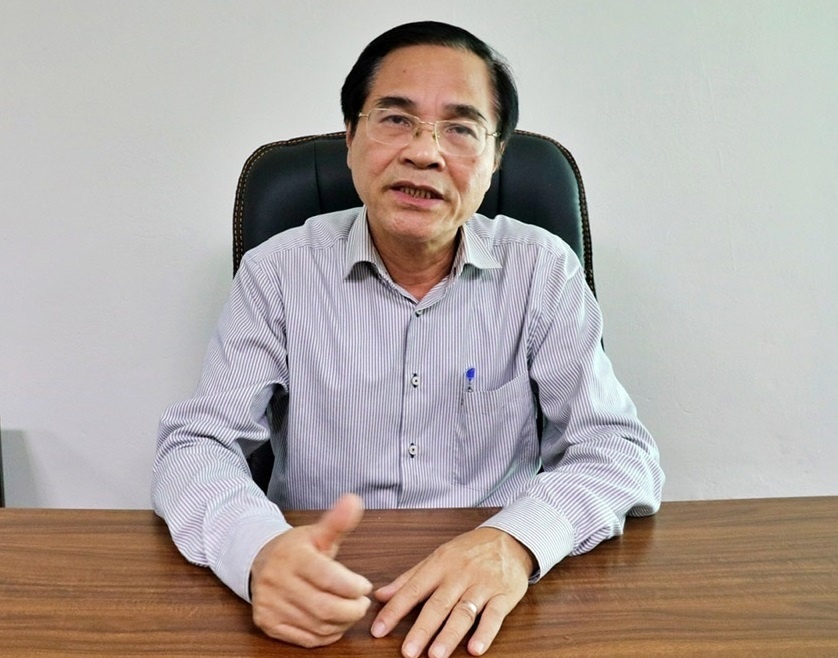INTERNATIONAL INVESTMENT
AND PORTAL
Vietnam emerged from a small-scale, self-sufficient agricultural economy, once a colony. After achieving independence in 1945, instead of focusing on economic development, the nation was thrust into major wars.
 Assoc. Prof. Dr. Le Bo Linh, former Deputy Chairman National Assembly Office
Assoc. Prof. Dr. Le Bo Linh, former Deputy Chairman National Assembly Office
For nearly half of these 80 years, while the world advanced in economic and technological competition, Vietnam devoted its full strength to warfare, national reunification, and homeland defence. This unique context was also a significant obstacle, preventing Vietnam from fully focusing on economic development post-independence, unlike some other independent nations.
Thus, the 80-year economic journey can be divided into two phases: the first half marked by a wartime, centrally planned, closed economy reliant on foreign aid; and the subsequent decades of economic reforms, transitioning to a socialist-oriented market economy and international integration.
After gaining independence in 1945, Vietnam endured another decade of resistance against French colonialists, relying on aid from socialist bloc countries to muster resources for the victorious struggle.
From 1954 to 1975, the country was divided. The north pursued socialism but essentially operated a wartime economy, channelling all resources into the resistance against the United States and national reunification.
Post-1975, after reunification, Vietnam faced further border conflicts. Thus, the first 40 years were characterised by a centrally planned wartime economy, built on a backwards agricultural foundation, underdeveloped industry, and dependence on external aid - a distinctive economic model of that era.
Despite such conditions, Vietnam achieved certain successes. Without these, the military and political victories would not have been possible. These outcomes stemmed from mobilising the entire population and resources for resistance, reflecting the success of a model suited to the context at the time.
Hypothetically, without the impact of wars, this model could have yielded greater economic achievements and better foundations, as seen in some Eastern European countries or China.
From 1986, amid the reform trends in socialist countries, Vietnam entered the era of doi moi and integration. The achievements over the past 40 years have been remarkable: from a food-scarce nation to a leading rice exporter; from a bureaucratic, subsidised economy to a dynamic, multi-sector market economy; and from a closed economy to one of the world’s most open, with total import-export turnover exceeding 200 per cent of GDP.
The economic structure has shifted significantly, from exporting raw agricultural products to manufactured goods. The private sector has flourished, playing a major role in growth and job generation. Alongside this, the equitisation of state-owned enterprises has fostered diverse market entities. Vietnam has been recognised as a market economy by 70 countries.
However, over the past 40 years, the world has undergone a powerful technological revolution, particularly in digital technology, AI, and big data, which Vietnam has not fully capitalised on. Our preparation in terms of institutions, infrastructure, and resources for the Fourth Industrial Revolution has been slow, a significant limitation.
The most critical lesson is the need for independent, self-reliant thinking. Only with such a mindset can creativity flourish; otherwise, dependency stifles innovation. This principle has been consistent through both wartime and peacetime. However, independence and self-reliance do not mean isolation but understanding ourselves and our context to chart a suitable path.
For instance, after the collapse of the Soviet Union and Eastern Europe, Vietnam faced uncertainty. Instead of copying foreign models, the state and government chose their own path of reform grounded in reality - such as the contract farming system in agriculture (which allows farmers to enter into agreements with agricultural processing companies to produce crops), economic liberalisation, and trade relations with the world regardless of political systems.
This independent, self-reliant mindset has become Vietnam’s unique brand, enabling the country to overcome crises and maintain stability.
The overarching policy drivers have been the shift to a market economy and proactive, active international integration. These two major forces have transformed the structure and shape of Vietnam’s economy over the past 40 years.
With the profound changes both domestically and globally, Vietnam is entering an ‘Era of National Rise’. But what does this concept mean in the current development context? In my view, it is not only about Vietnam’s internal transformation but also reflects humanity’s shift in the digital age, the AI revolution, and automation - distinct from previous industrial revolutions.
This new era of development is revolutionary in technology, trade, politics, and society, with many challenges related to sustainable development. Vietnam stands at the crossroads of both opportunities and challenges in this global era, requiring further innovation as the momentum from the previous phase gradually diminishes.
When we speak of the ‘Era of National Rise’ for the nation, it signifies not just a new historical phase but also a call to action. This call is to break free from low development levels, escape the middle-income trap, and avoid stagnation.
Vietnam must overcome the institutional, scientific, technological, and infrastructural bottlenecks that have persisted over the past 40 years. Continuing the same approach as the last 40 years would result in slower progress, incompatible with humanity’s new development era.
Thus, rising is not merely a sign of maturity but a mandate for profound renewal. Only by surpassing ourselves through bold thinking, institutional reform, and decisive action can Vietnam seize new opportunities.



















